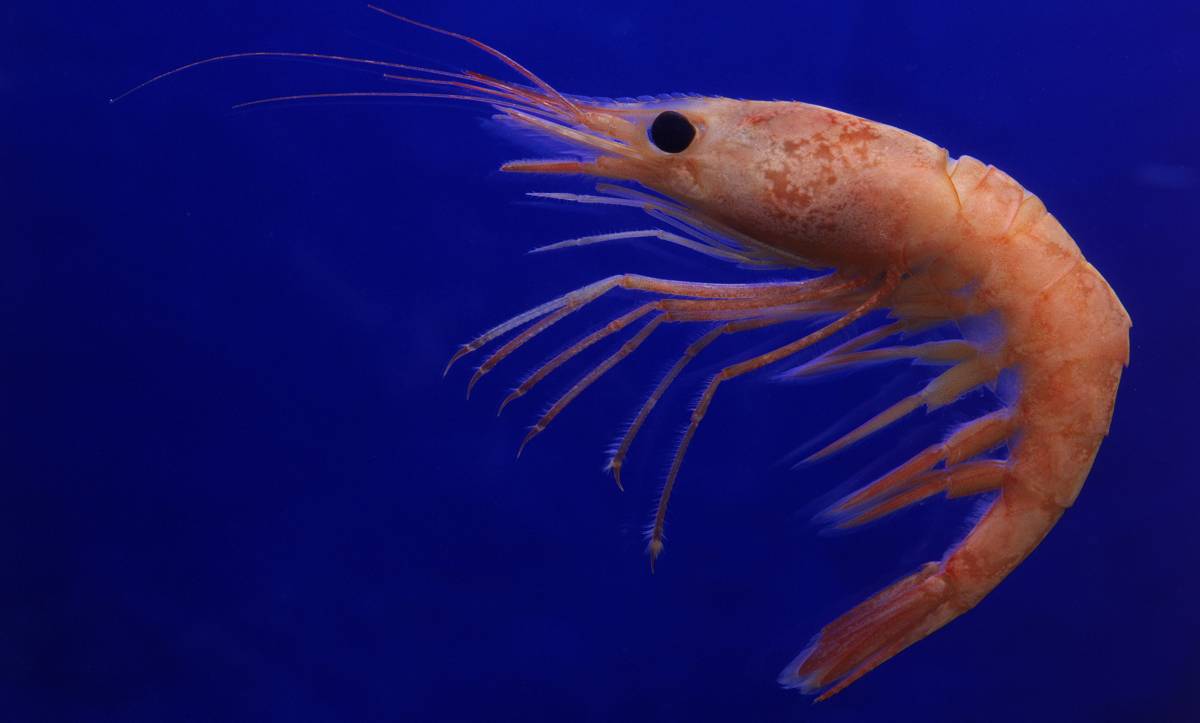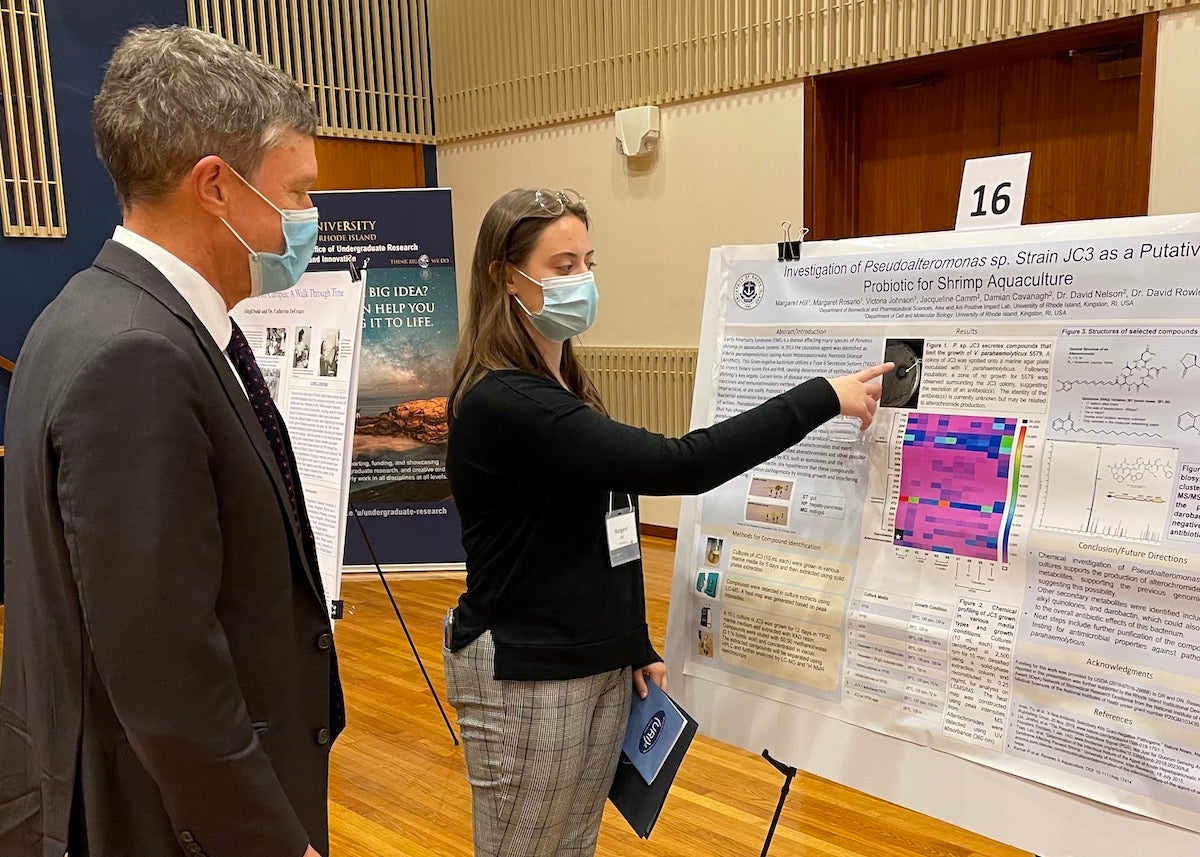BSPS student wins first place in Undergraduate Research Showcase
Maggie Hill won for her project combating disease in shrimp
A URI College of Pharmacy student’s study on a common disease affecting shrimp in aquaculture projects recently won first place at the Undergraduate Research Showcase on campus.
Maggie Hill, a BSPS student in the College of Pharmacy, aims to improve the health of aquaculture systems by seeking new ways to treat shrimp infected with Acute hepatic necrosis disease (AHPND), an infection affecting many species of Penaeus shrimp in aquaculture systems. Hill won first place in the STEM category of the research showcase, even showing off her study to URI President Marc Parlange.

Why does shrimp disease matter?
Shrimp is not only one of the world’s most valuable aquaculture species, but also a species that encounter high economic losses due to diseases. Diseases are sufficiently important to influence global supply and prices for longer periods.
Source: The economics of shrimp disease
The goal of probiotics is to create cost-effective, preventative measures against disease, because antivirals tend to be very specific and costly to develop, and antibiotics promote antibiotic resistance if not dosed correctly, you can imagine dosing large batches of shrimp larvae is very difficult.
Maggie Hill, BSPS Student
Investigation of Pseudoalteromonas sp. Strain JC3 as a Putative Probiotic for Shrimp Aquaculture
In 2013 the causative agent for AHPND was identified as Vibrio parahaemolyticus. This Gram-negative bacterium utilizes a Type 6 Secretion System to inject binary toxins PirA and PirB, causing deterioration of epithelial cells in the shrimp’s hepatopancreas.
Current forms of disease mitigation, including antibiotics, vaccines and immunostimulatory methods, either fuel antibiotic resistance, or are impractical and costly. Probiotics hold a promising future for pathogenic bacterial elimination because they may boost host survival using multiple modes of action, such as the production of bioactive specialized metabolites.
Pseudoalteromonas sp. strain JC3 is a Gram-negative marine bacterium that has shown protective effects against the AHPND-causing strain V. parahaemolyticus PSU5579. Deducing the mode of action of JC3 has proved to be challenging, but we recently identified a signaling molecule that may play an important role in the probiotic effect.
The goals of this project are to confirm the probiotic potential of JC3 using an in vivo brine shrimp infection assay and identify key signaling molecules produced by JC3 that may contribute to its host protective effects. In preliminary studies, we have identified a new alkyl quinolone that may serve as an unexpected signaling molecule for JC3; moreover, the role of this molecule will be further investigated using the in vivo infection model.

